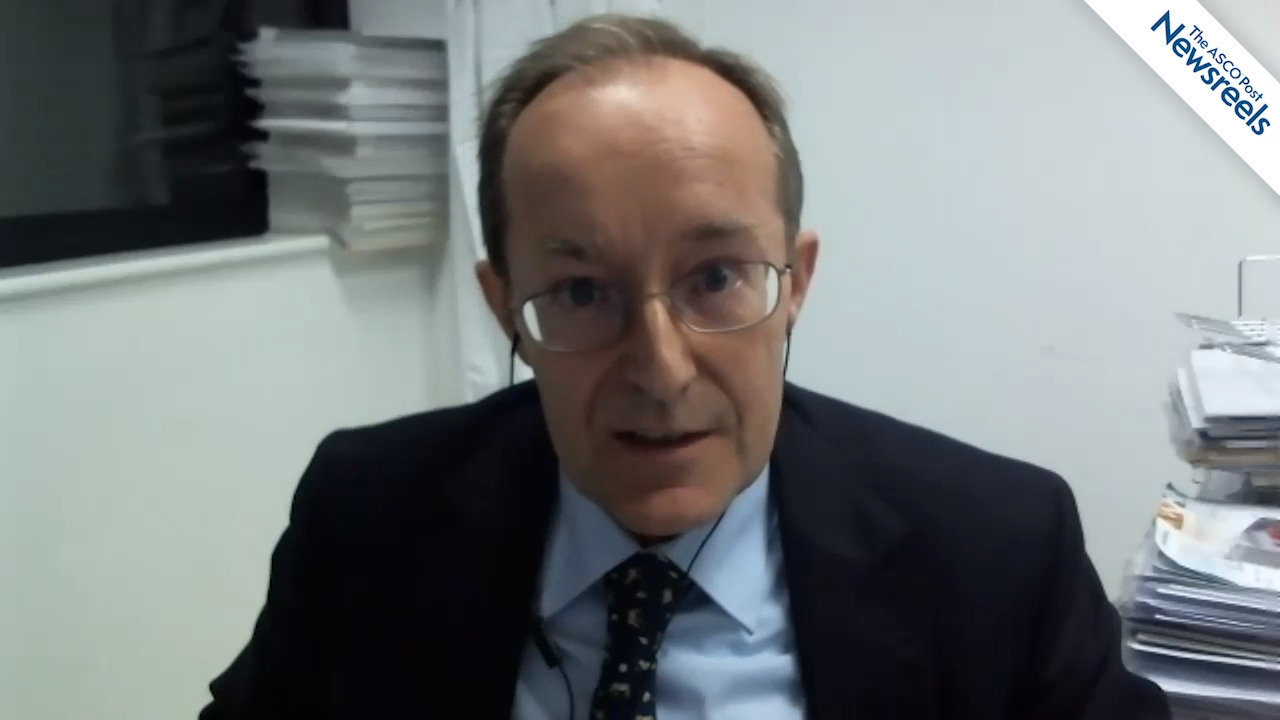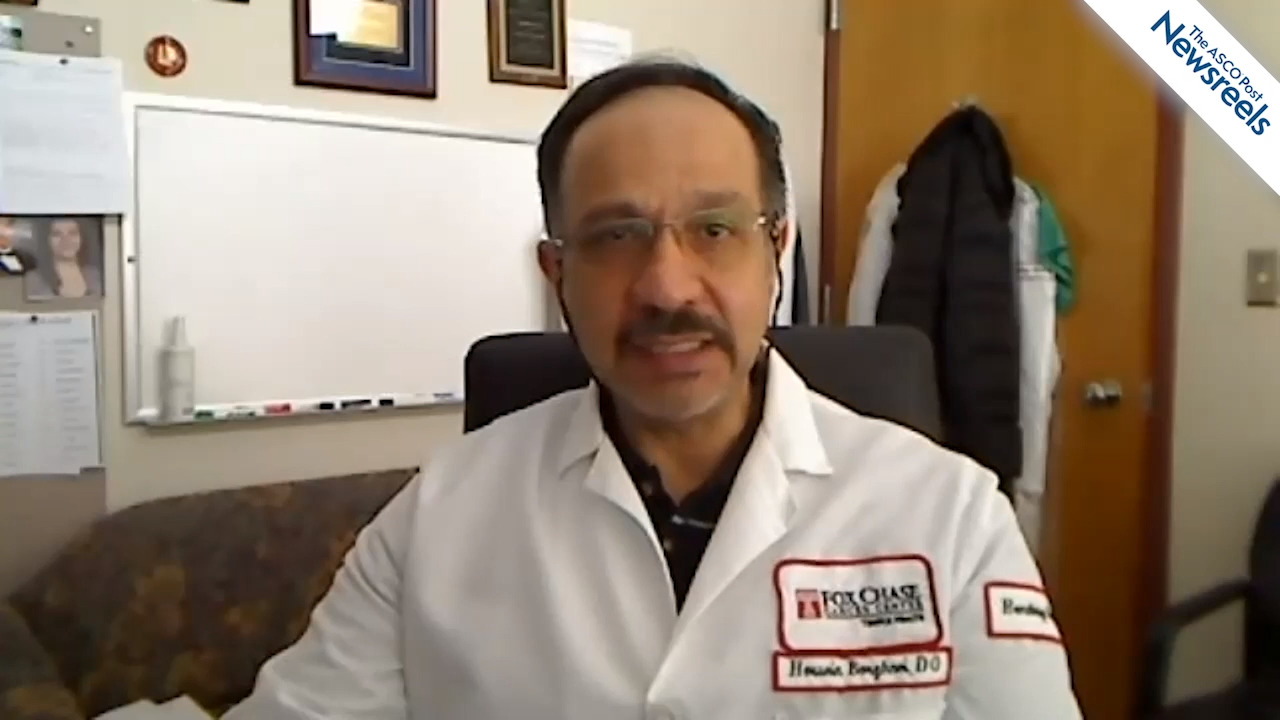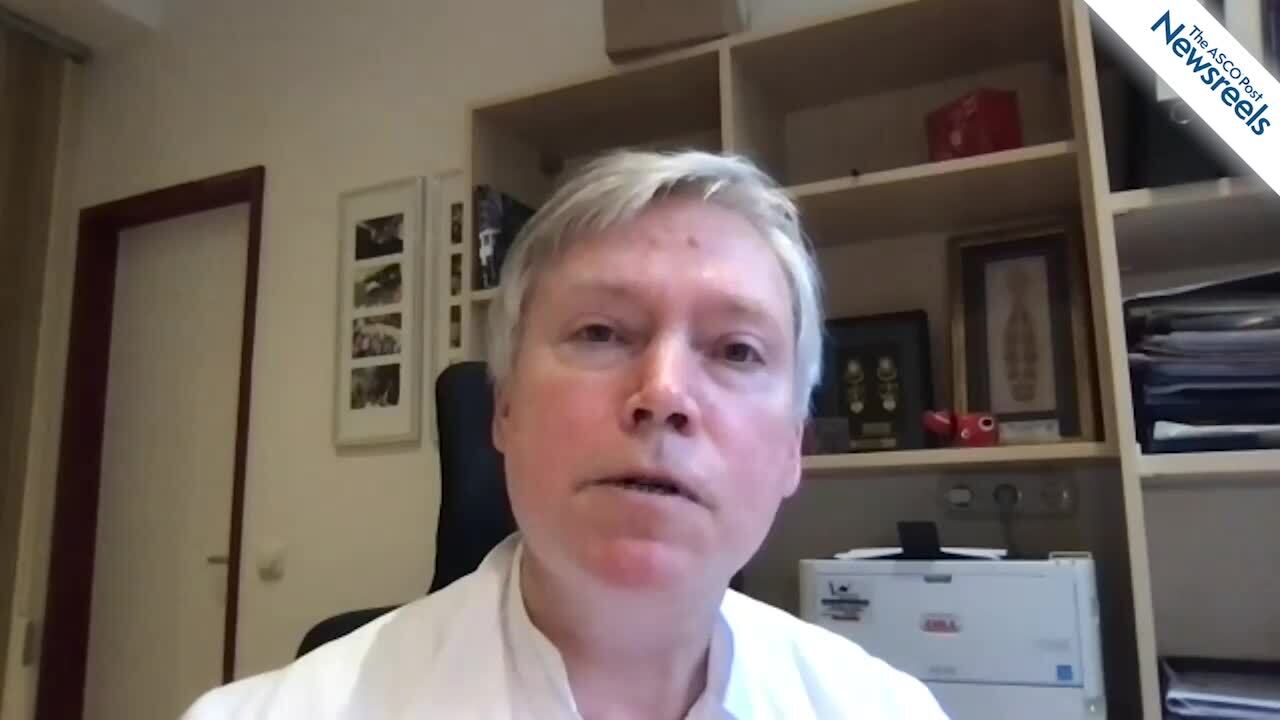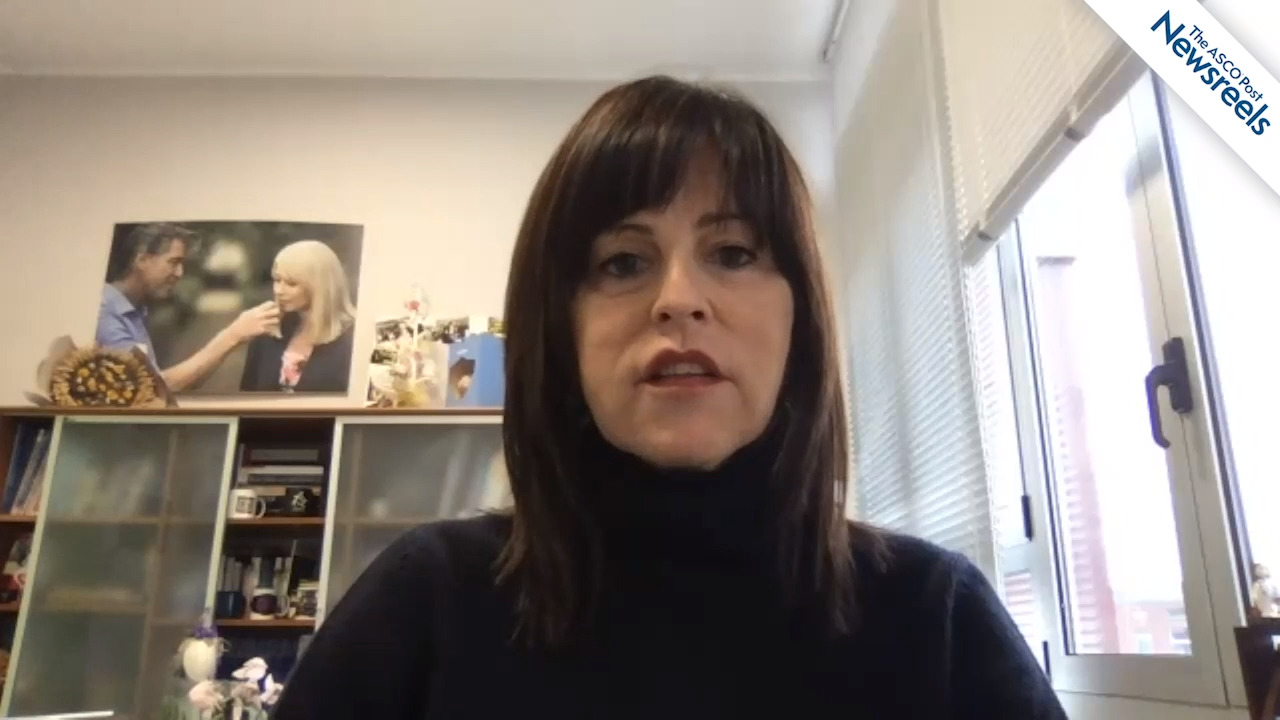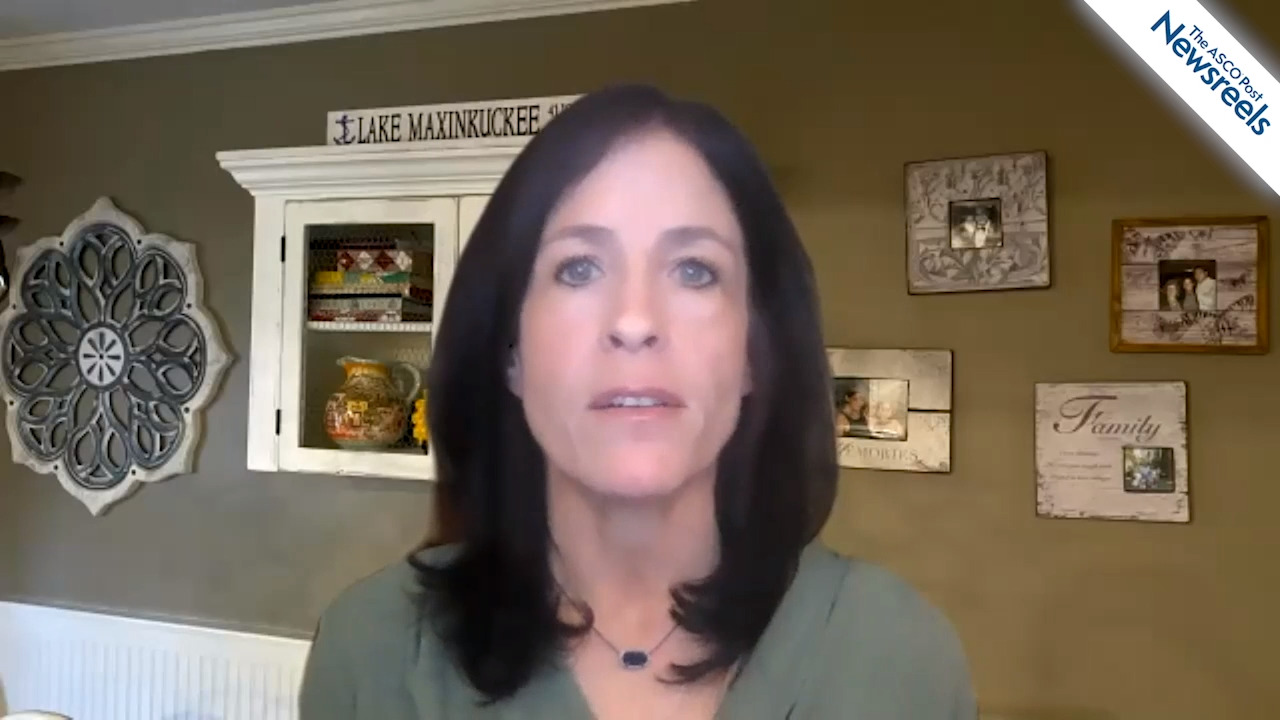Dean Fennell, FRCP, PhD, on Mesothelioma: Nivolumab vs Placebo in Relapsed Disease
IASLC 2020 World Conference on Lung Cancer in Singapore
Dean Fennell, FRCP, PhD, of the University of Leicester, discusses phase III results from the CONFIRM trial, which sought a standard immunotherapy treatment to improve overall survival for patients with mesothelioma who have relapsed after taking pemetrexed and cisplatin. Globally, the incidence of mesothelioma is on the rise; in the United Kingdom alone, it has gone up nearly 500% since the 1970s (Abstract PS01.11).
The ASCO Post Staff
Luis M. Montuenga, PhD, of the University of Navarra, discusses the potential contributions of biomarkers, promising biomarker panels being tested and published, the need to standardize biospecimen collection, and how to improve the sensitivity of these biomarkers (Abstract PL05.06).
The ASCO Post Staff
Hossein Borghaei, DO, of Fox Chase Cancer Center, discusses phase I results from a study of AMG 757, an experimental bispecific T-cell–engager (BiTE) immune therapy aimed at the DLL3 molecular target in patients with small cell lung cancer. At this early stage, results show clinical efficacy and safety, with 37% of 51 evaluable patients exhibiting disease control (Abstract OA11.03).
The ASCO Post Staff
Martin Reck, MD, PhD, of the LungenClinic, discusses the results from KEYNOTE-799, which explored a new strategy to increase the intensity of treatment in patients with unresectable, locally advanced, stage III non–small cell lung cancer (Abstract OA02.03).
The ASCO Post Staff
Silvia Novello, MD, PhD, of the University of Turin, discusses phase III results from the ITACA trial, which explored the notion of improving survival by customizing treatment and reducing toxicities for patients with completely resected stage II to IIIA non–small cell lung cancer (Abstract PS01.04).
The ASCO Post Staff
Jill Feldman, a patient advocate who has lost five family members to lung cancer and is herself a 12-year cancer survivor living with EGFR-positive disease, describes her family history of cancer, how she has worked with her physicians for more than a decade to survive her own diagnosis, and the message she would like all oncologists to hear.
